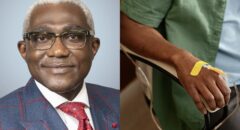In 1910, Madame C.J. Walker – a Black woman – was featured in the Guinness Book of Records as the first American woman self-made millionaire. In the early 1900s, Walker became a Black haircare pioneer with her development of hair products for Black hair. Not only did she profit from her innovations, but The Walker System, which included cosmetics, the Walker Schools and licensed Walker agents to sell her hair products, employed thousands of Black women and fueled their own entrepreneurial legacies.
READ: 10 Things Professional Hairstylists Want You To Stop Doing To Your Hair
Today, step into most beauty supply stores and you’ll find that although they are in flagships of Black neighborhoods and filled with products marketed toward Black consumers, the owners don’t typically look like us. According to a study from Market research firm Mintel, the Black haircare industry in 2012 was estimated at $684 million – likely heavily underestimated. A more accurate number is closer to $500 billion (a half trillion dollars). Mintel is quoted in a Huffington Post article stating:
What’s missing from these figures are general market brands, weaves, extensions, wigs, independent beauty supply stores, distributors, e-commerce, styling tools and appliances. If all of those things were to be taken into consideration, the $684 million in expenditures could reach a whopping half trillion dollars.
African Americans are the greatest consumers, but are we still the major power players behind this multi-billion dollar industry?
“I think it’s increasingly becoming less Black as the marketplace starts to understand the spending power and the opportunity,” said Ken Burkeen, Founder and CEO of Huetiful and Huetiful Salon based in Chicago.
Burkeen, along with a panel of Black haircare experts, discussed all things hair in this first installment of “Minds Over Matters,” a new video series that let’s experts talk about a subject in a raw, honest and real way. The series is executive produced by Junction Group Films and HeiPer Content.
READ: Madame C.J. Walker: The Recipe For Healthy Hair
For celebrity hairstylist, Chris Curse, a conversation about the lack of Black ownership in the Black haircare industry can’t be had without addressing the “Korean force” and their monopolization and privatization of products.
“They’ve dominated the beauty supply market on the consumer side. They’re now branching here in the Chicago area on the professional side and they’re attaching to those stores salons, and they’re requiring anyone working in those salons to get their products through them,” Curse said in the video.
Burkeen believes that distribution has always been king – whether it’s the film industry, music or haircare. Putting the “Black” back in Black haircare for Burkeen starts with shifting economic power and redirecting Black dollars to Black businesses, at all levels.
He explained, “I think it’s very important that the dollars that we spend in this industry get circulated back into other – whether it’s a makeup artist doing a shoot or a film crew – I think it’s important that we have ownership so that our dollars can go back to our businesses.”
What do you think? Is Black haircare still Black? Are Koreans trying at all to keep it Black, even a little bit? Check out the video and join/follow the conversation using #mindsovermatter.
Additional links:
Facebook : @therealmindsovermatters
Instagram: @therealmindsovermatters
Twitter: @therealminds_






